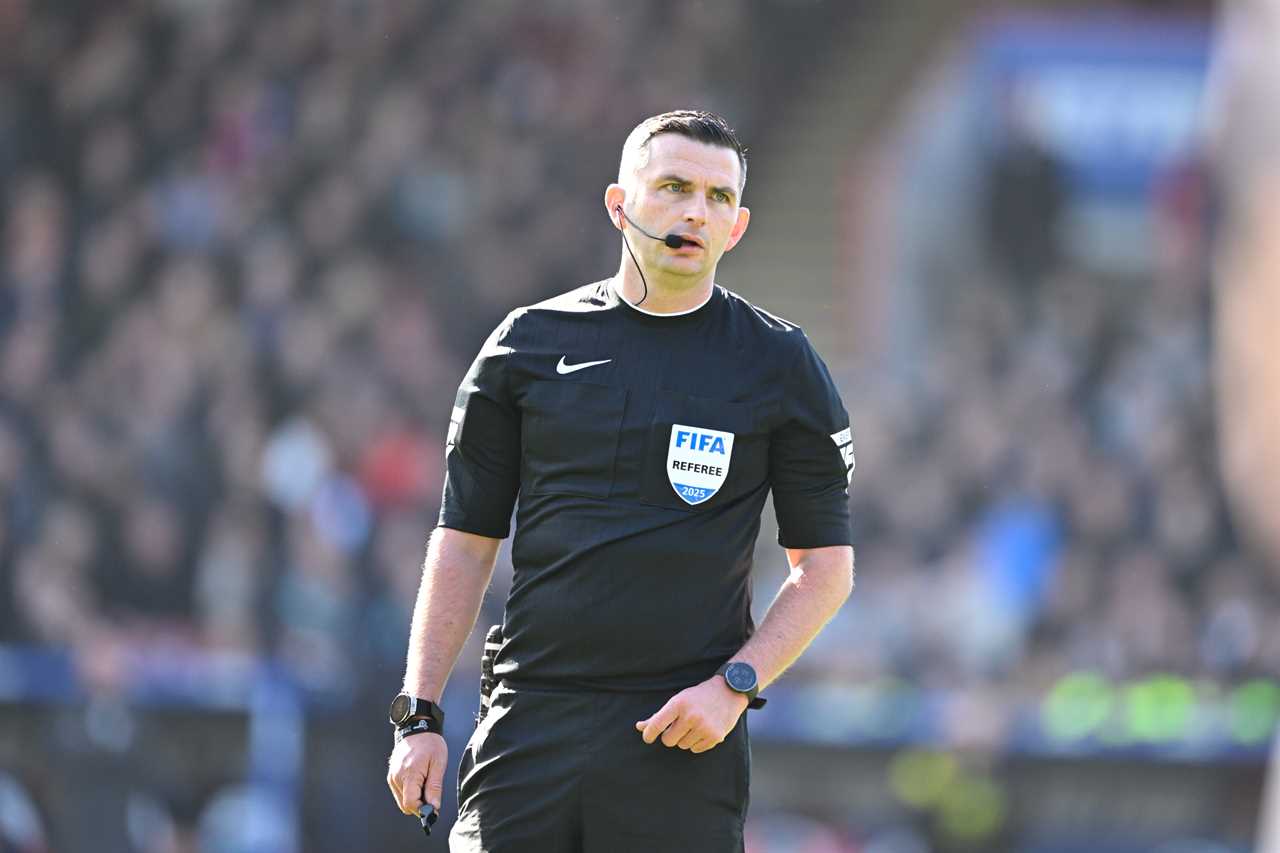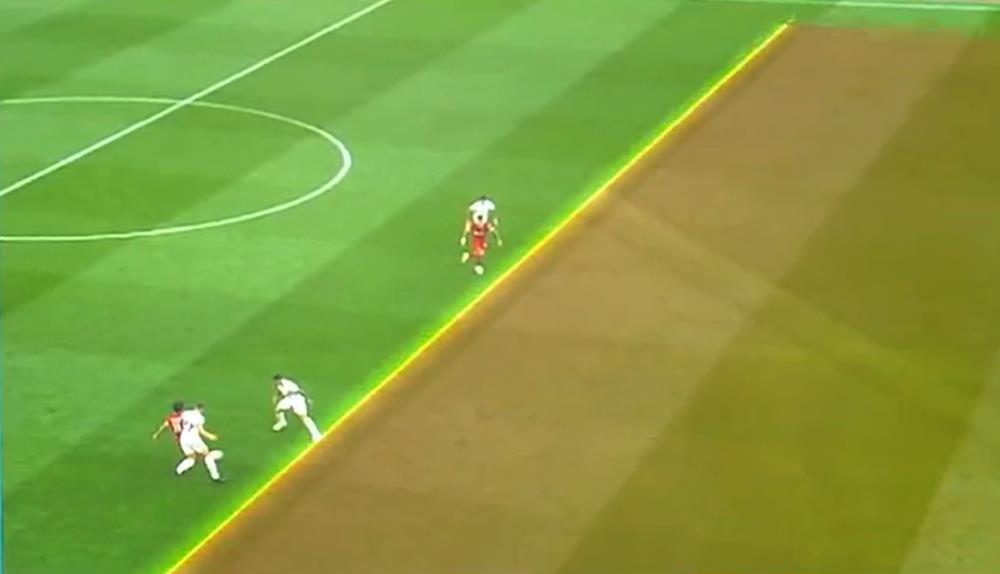
Premier League referees have been found to command impressive salaries, placing them among the highest-paid professionals in the country. These earnings underscore their pivotal role in a game watched by billions worldwide.
Referees’ Salaries Unveiled
Data shared by Howard Webb, chief refereeing officer, during a meeting with EFL clubs, disclosed that the average Premier League referee earns between £170,000 and £180,000 annually. Leading referees can make up to £250,000 each year.
Top Officials Earn a King’s Ransom
Veteran referees such as Anthony Taylor and Michael Oliver are at the pinnacle of the pay scale, with earnings reaching approximately £250,000 per annum. In contrast, newer referees in the 'Select Group 1' category earn around £125,000.
Breakdown of Earnings
The base salary for Premier League referees ranges from £72,000 to £148,000, depending on their experience and seniority. In addition to the base pay, they receive performance bonuses and match fees, which contribute to their substantial annual income. Including pensions and national insurance, the average total cost per referee is around £240,000.

Referee Pay Compared to Other Professions
When contrasted with other high-paying roles, Premier League referees stand out. For instance, pilots and air traffic controllers earn an average of £91,208, while chief executives and IT directors make roughly £81,000 each. Specialist medical practitioners receive about £73,000 on average. However, top professionals in finance, insurance, and law can surpass referee salaries.
Additional Earning Opportunities
Premier League officials have the chance to increase their incomes by officiating in UEFA-sanctioned competitions like the Champions League, Europa League, and Conference League, as well as FIFA events such as the Club World Cup and the World Cup. Referees can earn between £5,300 and £9,000 per Champions League match, and as much as £54,000 for World Cup tournaments, not including match bonuses.
Restrictions on Extra Matches
Despite these opportunities, Premier League referees face limitations in boosting their incomes beyond these avenues. The PGMOL (Professional Game Match Officials Limited) has restricted referees from officiating matches in the Gulf states. This decision followed an incident where referees participated in a match in the United Arab Emirates just before a controversial VAR decision in a key Premier League game, raising concerns about conflicts of interest given the ownership ties of some clubs.
These regulations ensure that Premier League referees remain focused on their primary role, maintaining the integrity and high standards expected in one of the world's most watched football leagues.

Frequently Asked Questions
What equipment is allowed in competitive football?
To ensure the safety of players and integrity of games, many competitive football matches have specific equipment rules. The rules of the game specify standard equipment, such as jerseys and shorts with sleeves. They also stipulate socks that cover shinguards, and footwear. The use of equipment or accessories that are dangerous to the player, or even their opponents, is prohibited. These regulations can vary according to leagues and age groups. It is important for players to follow these regulations to avoid penalties or being disqualified from playing.
How can I make sure my football boots are the right size?
For a proper fit, your football boots should be snug, but not too tight. This will allow for movement, without allowing the foot to slide inside the boot. It is important to leave a small space between the toes on the boot's front and your thumb to avoid the toes being squeezed in during running or kicking. It's also imperative to consider the width of your feet and select a boot style that accommodates narrow or wide foot shapes. Try on your boots with socks, and make sure they are fully laced.
Can I wear athletic clothing or only football gear?
Although you can technically play football with any athletic clothing, it is recommended that you wear football-specific apparel as they are designed to improve performance and comfort. Jerseys and shorts are usually made of lightweight, breathable materials that allow for optimal airflow, reducing overheating and sweat build-up. The fit allows for full range of movement, which improves agility and response during play.
What are the factors I should consider when buying a soccer?
When selecting a soccer, you should consider its size, the construction and the material. The size 5 is standard for all players over the age of 12 including adults. Sizes should be smaller for younger players. Material should match the surface of the pitch - leather on natural grass, and synthetics for rougher surfaces. Additionally, thermal-bonded footballs offer better waterproofing and shape retention compared to stitched options. Durability, feel, and flight are other important features to look at.
How do I choose the right football boots for my playing surface?
Selecting the appropriate football boots is dependent on the type of surface you'll be playing on. If you're playing on natural grass, metal studs cleats will be best for you. For artificial turf, boots that have a sole with flat or numerous rubber studs will offer a better grip. Indoor courts (IN), which are a type of court, require non-marking soles. This is to prevent surface damage and ensure proper movement.
Statistics
- Globally, the demand for lightweight football cleats has risen by about 30% in the past decade, reflecting changes in player preferences and playing styles.
- Research has indicated that around 60% of football-related ankle injuries could be mitigated with the correct choice of footwear.
- Goalkeeper gloves with advanced grip technology have been adopted by 85% of professional goalkeepers in top leagues around the world.
- Studies show that the proper use of shin guards can reduce the risk of injuries in football players by up to 70%.
- Compression garments are used by about 50% of professional football players during training sessions for muscle support and injury prevention.
External Links
How To
How to select goalkeeper gloves that will maximize performance
Selecting the correct goalkeeper gloves will make a huge difference. It is vital to consider grip when choosing gloves for different weather conditions. Palms made of latex offer the best grip. The glove should fit snugly, with some room for movement but without slipping. Gloves featuring finger protection will reduce the likelihood of injury due to hyperextension. You should also consider the type padding. A thicker pad can provide more protection but reduce the feel of the football. Be sure to pay attention also to wrist support. A strap that is secure will keep your gloves in position during dives.
Did you miss our previous article...
https://sportingexcitement.com/premier-league/trent-alexanderarnold-set-for-real-madrid-move-as-liverpool-stand-to-gain
 CricketBoxingFormula 1GolfHorse RacingPremier LeagueTennisPrivacy PolicyTerms And Conditions
CricketBoxingFormula 1GolfHorse RacingPremier LeagueTennisPrivacy PolicyTerms And Conditions
